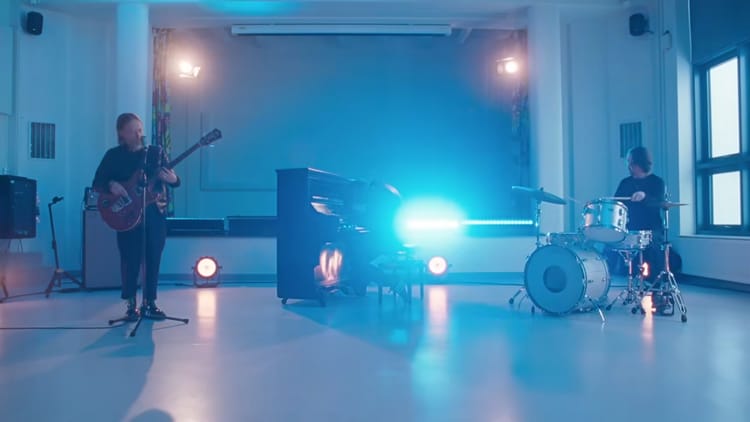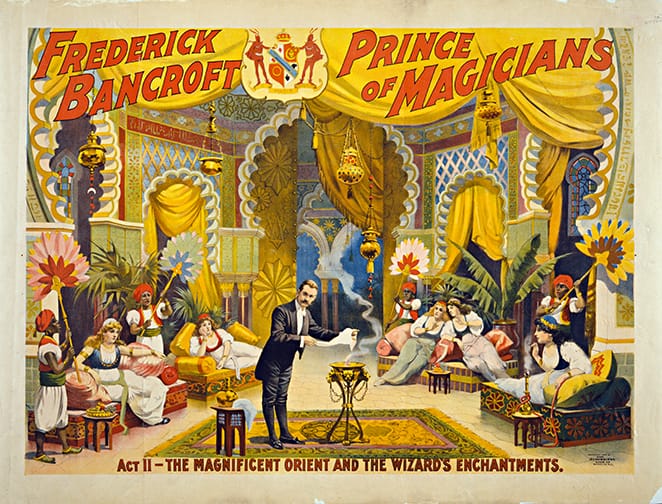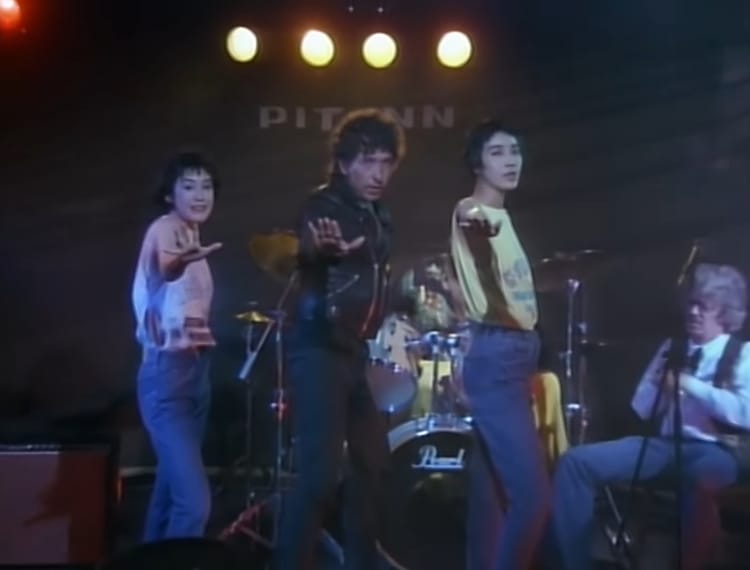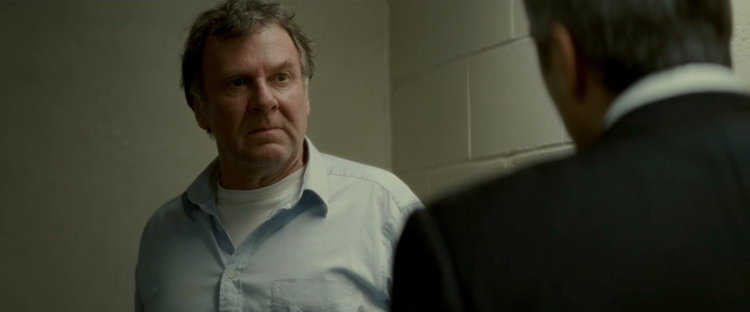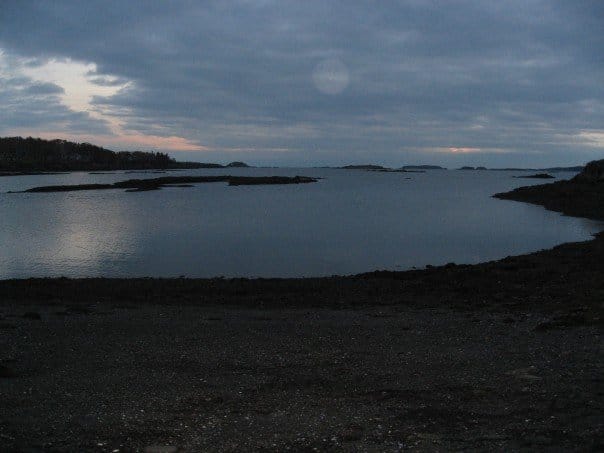I Didn't Write About...
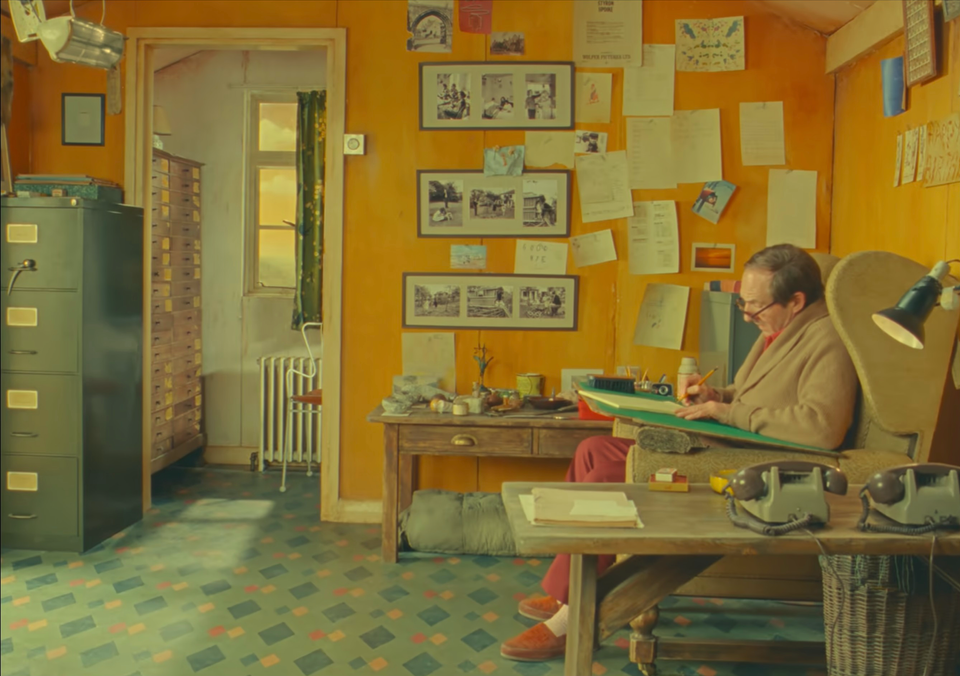
My dear subscribers,
Over the course of the past few months, there have been several topics on which I’ve considered writing a newsletter, only for it not to happen due to the pressures of book writing, other not-yet-announced projects, and family life. I think I have to say goodbye to the idea of doing these things justice in a long-form review and just leave a few words here letting you know what you aren’t reading more about. (Edit: having now completed these “non-reviews,” you could argue each is perfectly long enough to be its own newsletter. And yet if you know me, you know “perfectly long enough” is much too short.)
Wes Anderson’s Roald Dahl shorts: On four consecutive days at the end of September, Netflix released four short films by Wes Anderson, each adapting a story by Roald Dahl. Anderson assembled a small repertory company–including, in the order they come to mind, Dev Patel, Richard Ayoade, Ben Kingsley, Rupert Friend, Ralph Fiennes, and Benedict Cumberbatch–and set about doing something wildly ambitious, something I’m still processing all these weeks later.
The term Brechtian came to mind as I watched Asteroid City, the idea that the artist is letting the audience see how the illusion works and calling attention to the falseness of the entire storytelling exercise. Well, Wes heard my Brechtian and said Hold my beer–these short films are filled with the sort of Verfremdungseffekt (Brecht’s term for “distancing effects”) that remind the audience they’re watching something unnatural, something made by human beings, and thus an illusion they’ll need to complete with their own imaginations.
These shorts have a secondary cast in addition to the recognizable faces: a group of something like stagehands, always there to pass off a prop or take one from an actor who no longer needs it, or shift the scenery to fit the story's need. Not only that, there are several instances in which we’re asked to imagine props, and even live creatures, that the characters are interacting with as though they’re present. In “The Rat Catcher,” we spend quite a bit of time seeing a rat we don’t see–and when we do see a rat, something even more bizarre happens, but we can’t get into that here. It’s all deeply odd—the project feels something like a companion to Asteroid City, another exploration of stagecraft and artifice. But this is something even more aggressively cerebral; part of the reason I never wrote about these shorts is that I still haven’t wrapped my head around them.
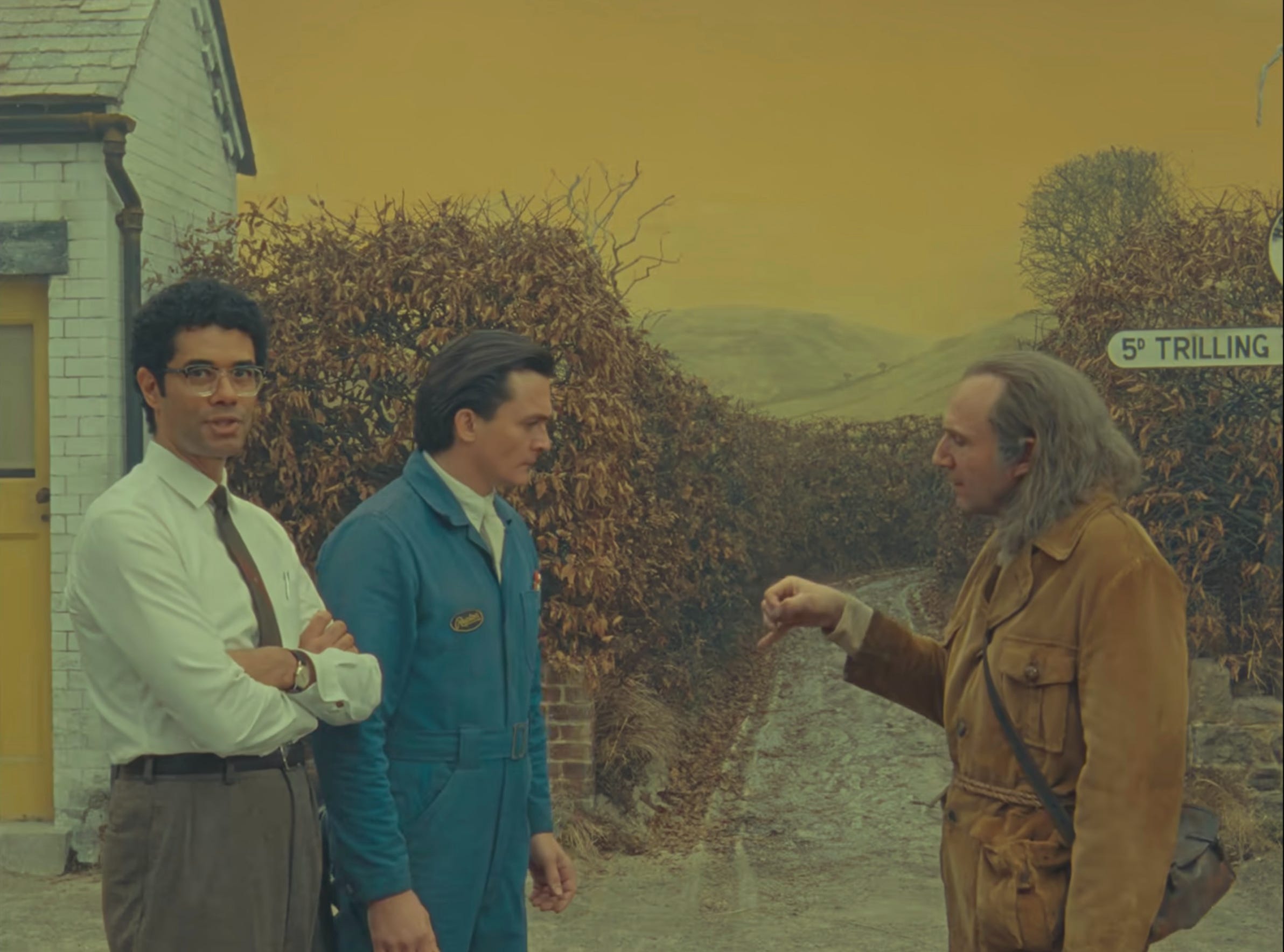
It’s hard to grapple with the Roald Dahl of it all–the guy was notoriously a real sonofabitch in some pretty significant ways, and Anderson depicts him quite lovingly. We’re not being asked to separate art from artist but rather integrate artist into art in a pretty direct way. I wonder how Wes reconciles that tension, or if he maybe just lives within it. The material he’s chosen has brought out some storytelling instincts he’s never employed before, a nihilism (I’m thinking of “The Swan”) and violence (I’m thinking of “The Rat Catcher”) we haven’t seen in such a pronounced way. Wes has made 11 movies now, and we can’t call this the 12th (much as I yearn for a strung-together anthology version, for which these shorts would be the perfect length). After almost a dozen features, though, there’s a real sense this year that he’s just now stretching his legs, cracking his knuckles, and starting to think about some really, really interesting stuff. The idea that anyone could still look at his work and sneer, “It’s like a parody of a Wes Anderson movie” is one of the biggest red flags for artistic incuriosity there could be in 2023.
Joe Pera - Slow and Steady: Before we get into it, I guess I should set up Joe Pera, since he’s not the household name I wish he was: Joe showed up on the scene with a viral standup set on Conan, in which a lot of the next-day coverage centered on the question “Is this guy all right?” Soon enough, it turned out Joe was very much all right, and an incredibly gifted storyteller, as he demonstrated with a couple of Adult Swim specials that led to his extraordinary three-season show “Joe Pera Talks With You.” Now, a year after the show’s brutal cancellation, Joe is circling back around to where we first met him with a new standup special, Slow and Steady.
I’ve been a chronicler of Joe’s for a few years now, having written about his show at Bright Wall/Dark Room and later at Polygon (I’m actually credited on Wikipedia for having “announced” the show’s cancellation, which is categorically untrue). Joe and I spoke about Punch-Drunk Love for my podcast Pod Thomas Anderson. We follow each other on Twitter. It seemed only natural, and only right, that I’d write something on his stand-up special. Yet I’ve failed to do so. Sorry, Joe.
On the one hand, I have a little trouble writing about stand-up comedy. It’s one of my favorite art forms, but maybe the one I’m least inclined to analyze. What’s more fun than just letting a stand-up special hit you in waves, forgetting the last joke in your haste to enjoy the next? There’s a reason the stand-up album is an enduring format–you want to return to a special and hear what you missed from laughter or forgot in the haze. I’ve never read a word of theory on standup; I just like to experience it. So that’s an excuse: I didn’t write about Slow and Steady because I don’t know how.
On the other hand, Slow and Steady also demonstrates a somewhat different Joe than the character I’ve written about, which posed something of a challenge. This is something closer to what might be the genuine Joe Pera–the writer and actor from Buffalo, not the choir teacher from Michigan’s upper peninsula–and while it’s always hard to tell Joe’s persona from his genuine self (though, having talked to him, I can say: Joe is Joe), we do seem to meet the real man here, particularly in a few clearly unplanned moments.
Yes, it’s startling to hear Joe say “fuck” a lot—which he does as part of a supposed Modern Love column he’s working on for the New York Times. Yes, it’s only increasingly wonderful to hear him repeatedly say “cubes for my boys” (either you’re smiling now or you haven’t watched it yet). But I was most struck by the space Joe builds in for crowd work, a pretty vulnerable place for a comedian to put themselves in. Joe frequently asks for the audience’s input on his performance, particularly in one standout sequence that sees him asking the crowd what they think happened when he saw a squirrel encounter a pita chip.

The results are mixed–the crowd isn’t quite sure how to play ball with this most unusual comedian–which only brings out increasingly charming sides of Joe. At one point he mutters about how he shouldn’t have asked the ushers to “bonk” everyone on the head on the way inside–I laughed at that as much as any joke, and maybe more. Later, he surveys couples in the audience about who gets to set the temperature at home, and he seems genuinely fascinated with the dynamics he learns about. “Damn, dude!” he marvels at one particularly unbalanced domestic setup, a line that would never have slipped out of the mouth of “Joe Pera” from Michigan. Joe is a gifted joke writer, but I’d now be more interested in seeing him do a full evening of crowd work. If anyone could pull it off, it seems like he could.
If you can count on one thing with Joe Pera’s work, it’s that you’ll be caught off guard by some pocket of hilarity or profundity. Slow and Steady is heavier on the former than the latter, but, in its own way, it’s just as surprising as Joe Pera Talks With You. When Joe Pera announces a project, you pay attention. I can’t wait for what comes next. (No pressure, Joe.)
The first two hours of Taylor Swift - The Eras Tour: Yesterday I had an appointment that caused a certain amount of dread. Don’t worry, everyone’s healthy, it’s not like that. But sometimes there’s a conversation on the calendar you’re really not looking forward to, y’know? So what are you supposed to do? The conversation’s at 2:30 and it’s 11:00 and good God you’re not getting anything done. What do you do? Obviously, you go to church.
I’ve written about this before, the way I increasingly see movie theaters as akin to holy spaces–not in the sense that you go there to worship at the altar of cinema or anything like that. No, I mean more like: the movies are more or less always open, and as long as you have the (increasingly exorbitant) price of admission, you’re always welcome to go there and just sit and be peaceful with whatever you need to be peaceful with. That’s the great thing about movies: they’re right there, happening in front of you, but you have no obligation to pay attention. You can drift in and out, and be there, and be ruminating as much as you need to, while also focusing on something when you need that. So at this point, I’m pretty comfortable buying a ticket for a movie I know I can’t finish. I did it with Doctor Sleep; I did it with Babylon. In both cases, I finished the movie later, but in both cases, I bought a ticket knowing I’d be walking out somewhere between the halfway and two-thirds marks.
This probably strikes some people as strange. A waste of money. A waste of time. But movie theaters have a lot of the same qualities as churches if ya think about it, and I’m not religious, so slipping into a pew for a little while doesn’t really click for me. Instead, I plunk down my–oh my god are you kidding me twenty dollars to watch a spectacular concert film by an artist I have no particular fondness for.
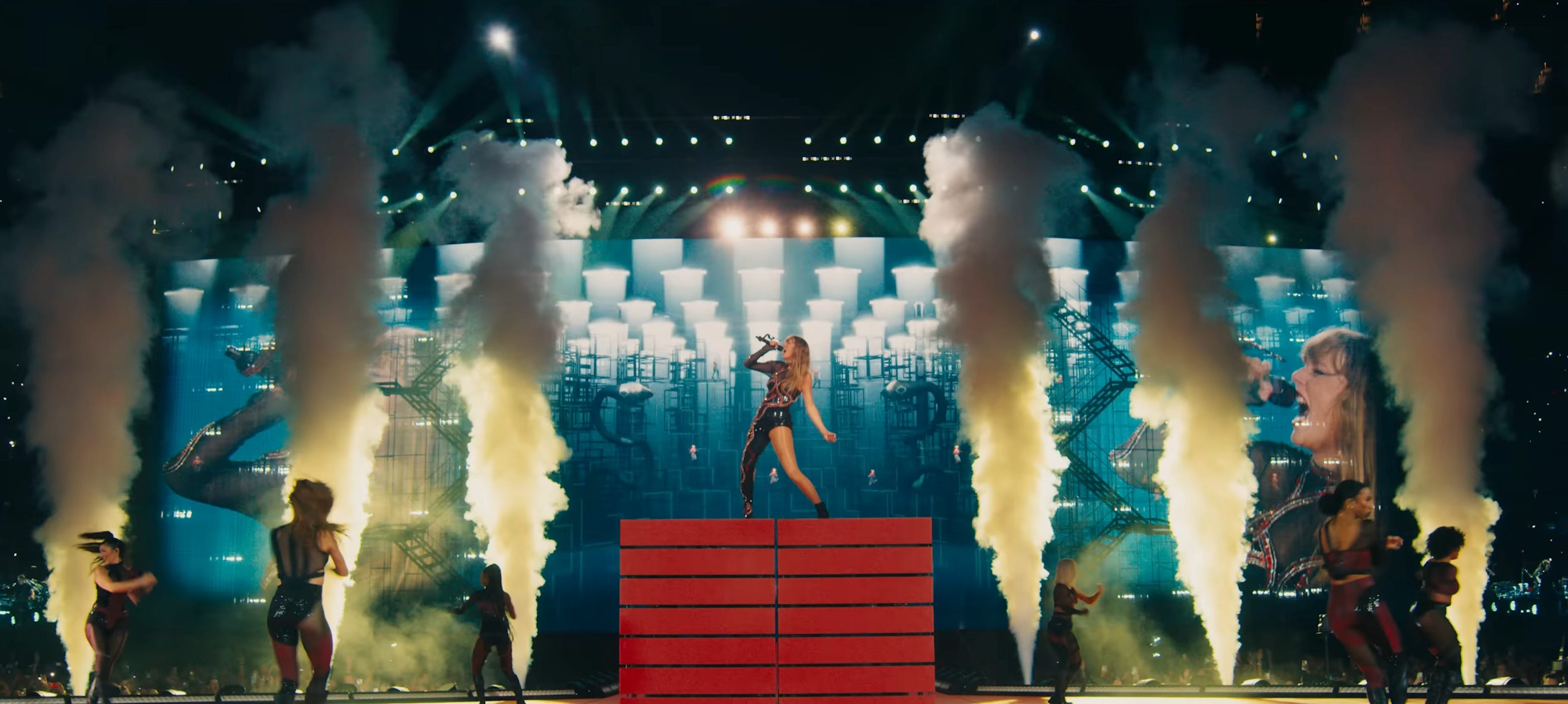
I spent much of The Eras Tour trying to remember where Taylor Swift came from. You could tell me pretty much anything about her before maybe 2013 and I’d believe you–She won America’s Got Talent? Sure, why not. She was on a Disney Channel sitcom? Yeah, checks out. Taylor Swift is like the Washington Monument: I can count on her being there, and I largely don’t think about her at all. I really like “Shake It Off.” “Out of the Woods” has always had a certain power over me. But aside from that, I would fail any “guess the real Taylor Swift song title” game.
And yet yesterday I slapped my Andrew Jackson down on the barrel (OK, I used my Showcase Cinemas Starpass membership) and chose a seat in the middle of the second row. That’s my habit when I want to use a movie as a weighted blanket–not the first row, I like my neck in its current shape, but especially if the theater has recliner seats, there’s something pretty awesome about kicking back and letting your field of vision be overtaken by a movie.
So how did I feel about my field of vision being overtaken by Taylor Swift? Well, the word that kept coming to mind was undeniable. Taylor Swift is an undeniable performer. Is she undeniably talented? Undeniably captivating? Undeniably the great artist of her generation? Look, I know hordes of people believe all that to be true. I’m not quite so sure. My teeth went on edge a little any time Taylor worked the crowd—she’s so very, very committed to projecting genuine moments with her audience that it ends up coming across as unusually canned. But when I say Taylor Swift is undeniable I mean she’s undeniable like Coca-Cola Classic or New York style pizza: you can prefer something else, but if you deny the appeal, you’re just being contrarian.
I would not have enjoyed going to see the Eras tour. Standing up and seeing it from a fixed distance, I would have gotten quite bored quite quickly. But from a comfortable seat, enjoying a cinematographic view of events, I enjoyed the first two hours of the movie. This concert is spectacle on a pretty outrageous scale–we open with a group of dancers wearing what I can only describe as Brobdingnagian peacock tails, which they ostentatiously wave up and down to create…some kind of effect I can’t quite describe. There are costume changes aplenty, there’s Broadway style choreography, there’s a damn cabin at one point (upon the roof of which Taylor perches, and I’m sure she was perfectly safe but it stressed me out). I liked some of the music well enough (OK, I’ve listened to “Cruel Summer” four or five times since yesterday, whatever). I’ll never go back and finish it (though I was slightly disappointed to miss “Shake It Off”). But because of the very specific function it served–taking my mind off of something I was dreading–I will always have a real fondness for it. I’m glad I went to church to see Taylor Swift. I don’t quite mean it like the preteen girls a few rows behind me clearly meant it (and seriously why were they not in school), but at the same time, maybe I do.
(Oh, and the dreaded conversation went about as well as could be expected.)
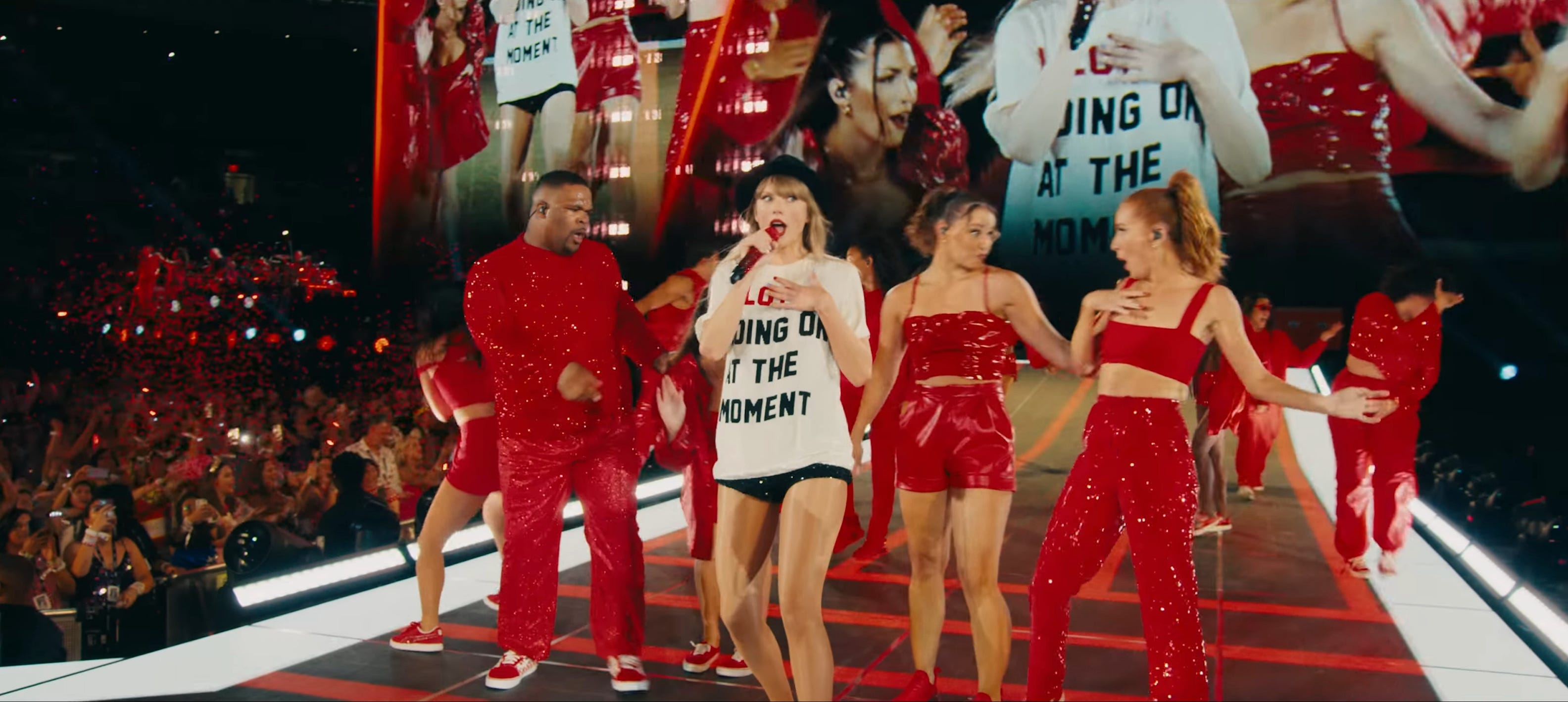
OK, that’s about 2,000 words, I think I can say I cobbled together a newsletter out of all the things I didn’t write a newsletter about. It’s been a couple of months, so I did want to let you all know I’m still out here clocking in at the word factory. Those words have mostly been going elsewhere at the moment, but this newsletter is still a going concern. I have a whole week of extremely fun content already in the queue for December, so stick around until then at least, and in the meantime, maybe we’ll cobble together some more installments like this, especially as awards season (a.k.a. “finally some good fucking food” season) kicks in.
Before I let you go! I should direct your attention to my most recent project, another co-production with my bosom friend and professional collaborator Blake Howard at One Heat Minute Productions. We’re about halfway through a new miniseries called The Great Henson Caper, in which I’m telling the life story of Jim Henson in 12 installments with input from brilliant guests like Henson biographer Brian Jay Jones, Muppet superfan Connor Ratliff, people I’ve admired for years like Dan McCoy and Elliott Kalan of the Flop House and video essayist Patrick Willems, and a bunch of really good pals I was excited to bring on for the Henson party–oh, and my daughter, who serves as the official “kid correspondent” (except on The Dark Crystal and Labyrinth–too creepy). I’m really happy with this project, and we’re only about halfway through. Jump onboard now by searching One Heat Minute Productions wherever you get your podcasts, or check out this Spotify playlist a buddy of mine created to catch just this miniseries.
Until next time: good night, stay warm, and drive at least one more day. (I heard a local newscaster say that once, I think in reference to oncoming snow, but it struck me as somehow profound.)
